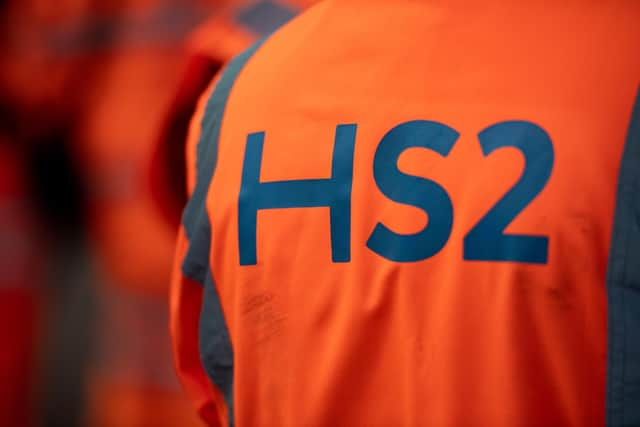Rishi Sunak: Transport funding for Yorkshire will 'benefit more people, more quickly' than HS2 would ever have done
As revealed in Saturday's edition of The Yorkshire Post, from the £36bn saved by scrapping HS2's Northern leg, just under £1bn in funding is today to be pledged to the county.
Now, as Transport Secretary Mark Harper outlines how the funds could be spent on new roads, or updating bus and train stations, he insists this is the "right" decision for Yorkshire.
Advertisement
Hide AdAdvertisement
Hide Ad"All these projects are made possible because this Government took the right long-term decision to reallocate funding from the second phase of HS2 and has prioritised re-investing that money to improve local transport projects," he said.


“The Local Transport Fund is the first fully devolved transport budget of its kind for smaller cities, towns and rural areas. It recognises that you, not Westminster, know the transport needs of your area better than anyone."
Today's announcement comes as Prime Minister Rishi Sunak prepares to host his first Cabinet meeting in Yorkshire today.
Yorkshire is to receive a £947m funding boost from April next year, he is to outline, to improve transport connections particularly across smaller cities, towns, and rural areas.
Advertisement
Hide AdAdvertisement
Hide AdThis "new" investment will deliver an "unprecedented" uplift over seven years, Government insists, as the first fully devolved transport budget of its kind.Over the next seven years the sums under the Local Transport Fund will be "at least nine times more" than local authorities currently receive for local improvements, the DfT claims.
And this, claims the Prime Minister, is "levelling up in action", which will benefit more people than a high speed rail link.
Mr Sunak said: “We have a clear plan to level up our country with greater transport links that people need and deliver the right long-term change for a brighter future.
“Through reallocating HS2 funding, we’re not only investing nearly £1bn directly back into our smaller cities, towns and rural areas across Yorkshire and the Humber, but we are also empowering their local leaders to invest in the transport projects that matters most to them - this is levelling up in action.
Advertisement
Hide AdAdvertisement
Hide Ad“The Local Transport Fund will deliver a new era of transport connectivity. This unprecedented investment will benefit more people, in more places, more quickly than HS2 ever would have done, and comes alongside the billions of pounds of funding we’ve already invested into our roads, buses and local transport services across the country.”
Combined authorities in South and West Yorkshire already see city settlements, while this new round of announcements is driven towards smaller cities, towns and rural areas. Outlined is just under £380m in funding for York and North Yorkshire, £168m for East Riding, £161m for Hull, and £118m and £119m for North and North East Lincolnshire.
The funding, announced as part of Network North, comes alongside £8.3bn to resurface roads across the country, £1bn to improve bus services in the North and Midlands, and £200m to extend the £2 bus fare cap across England – all from reallocated HS2 funding.
It will be made available from 2025 to give local councils "enough time" to develop funding plans, so they can "hit the ground running" with projects from building new roads and junctions to new mass transit systems, tackling potholes or congestion.
Advertisement
Hide AdAdvertisement
Hide AdTransport Secretary Mark Harper described today's announcement as a "game-changer" for Yorkshire. Lord Patrick McLoughlin, Chair of Transport for the North, said it was a "sign of progress".
"By having greater clarity on the funding that’s available, and consolidating funding streams, it helps remove inertia and accelerates delivery on the ground," he said. “TfN look forward to working with government and local leaders, because we know that the travelling public will get better results the more locally the decisions are made on how those services should be provided.”